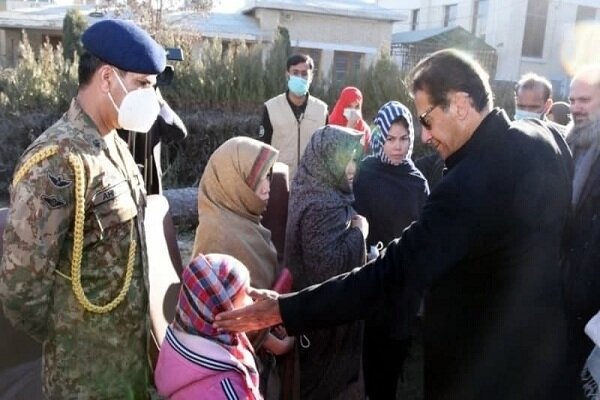Pakistan must limit extremists’ activities: security expert

TEHRAN - An Indian security expert advises Pakistan to limit extremists toeing the Wahhabi line, saying extremist thoughts have been ingrained into some segments of the population in Pakistan by vocal and powerful clerics.
Early Sunday, armed men abducted and killed at least 11 coal miners in southwestern Pakistan. All the victims were attributed to ethnic Hazaras, a minority Shia group that has often been the target of Wahhabi extremists.
Officials said the events took place in Machh, a small mining town in Baluchistan Province about 30 miles east of Quetta, the provincial capital.
Over decades Pakistan has been witnessing violence against religious minorities, especially Shias by extremist groups chiefly funded and trained by Saudi Arabia.
The United States, India, and Afghanistan have long accused Pakistan of providing safe havens to terror groups like the Taliban, the Haqqani network, the Lashkar-e-Taiba (LeT), and Jaish-e-Mohammed.
However, Prime Minister Imran Khan has tried to make some reforms since he came to power in 2018, saying there are no "safe havens" for terror groups in Pakistan.
Asked about the message of this terrorist action the security expert tells the Tehran Times that “the killings indicate that the Pakistani government has never been serious enough of protecting its minorities, whether they are Shias. Ahmadiyyas, Hindus, or Christians.”
“Minorities are targeted at will and hardly have the killers been brought to book,” Maj. Gen. Harsha Kakar says.
While human rights organizations say these killings are due to the failure of the government and security forces, the Indian analyst notes that “it is deplorable and the government must be taken to task. Pakistan seeks close relations with Iran, which is the global protector of Shias, but at the same time refuses to protect their communities.”
Meanwhile, Pakistani Prime Minister Imran Khan has said, "We are taking steps to prevent such attacks in the future."
“I want to reassure the Hazara families who lost their loved ones in a brutal terrorist attack in Machh that I am cognizant of their suffering and their demands,” the Pakistani prime minister said in a tweet he published on January 6.
Islamabad’s move to limit extremists’ activities would show that it is going to review its religious ties with Saudi Arabia.
The maximum number of terrorist groups proscribed by the UN Security Council are active in Pakistan. In Baluchistan where these killings happened, locals claim that there is the highest presence of security forces.
“Yet if they did take place and Pak has failed to target the group, it displays it is unwilling to act against them as those targeted were not the majority Sunnis. This is neither the first attack on minority Shias nor will be the last,” the major general remarks.
Nevertheless, the hatred against the Shia minority is deep-rooted culturally in societies like Pakistan which has been subjected to Saudi-funded Wahhabi education and the Pakistani government has a long road ahead to reform its educational system and get rid of the impact left by the Saudis.
While the Wahhabi teachings state that Shias are pagan, “the recent anti-Shia protest in Karachi, which was officially permitted, displays the country's mindset,” Kakar argues. “No member of the government criticized the protests and stated they were wrong. It has a long way to go before it reforms as a responsible global nation which protects its citizens, despite their beliefs and religion.”
He says while Imran Khan blames neighboring countries for exploiting sectarian terrorism, there is no evidence for such a claim.
“They throw the blame on others. Invariably, they blame India and Afghanistan. Ironically, no nation accepts their logic and blame,” the security expert says.
Kakar concludes that “in Pakistan, extremist thoughts have been ingrained into the public by their vocal and powerful clerics, toeing the Wahhabi line. No funding is needed now, as these thoughts have been too deeply ingrained.”
